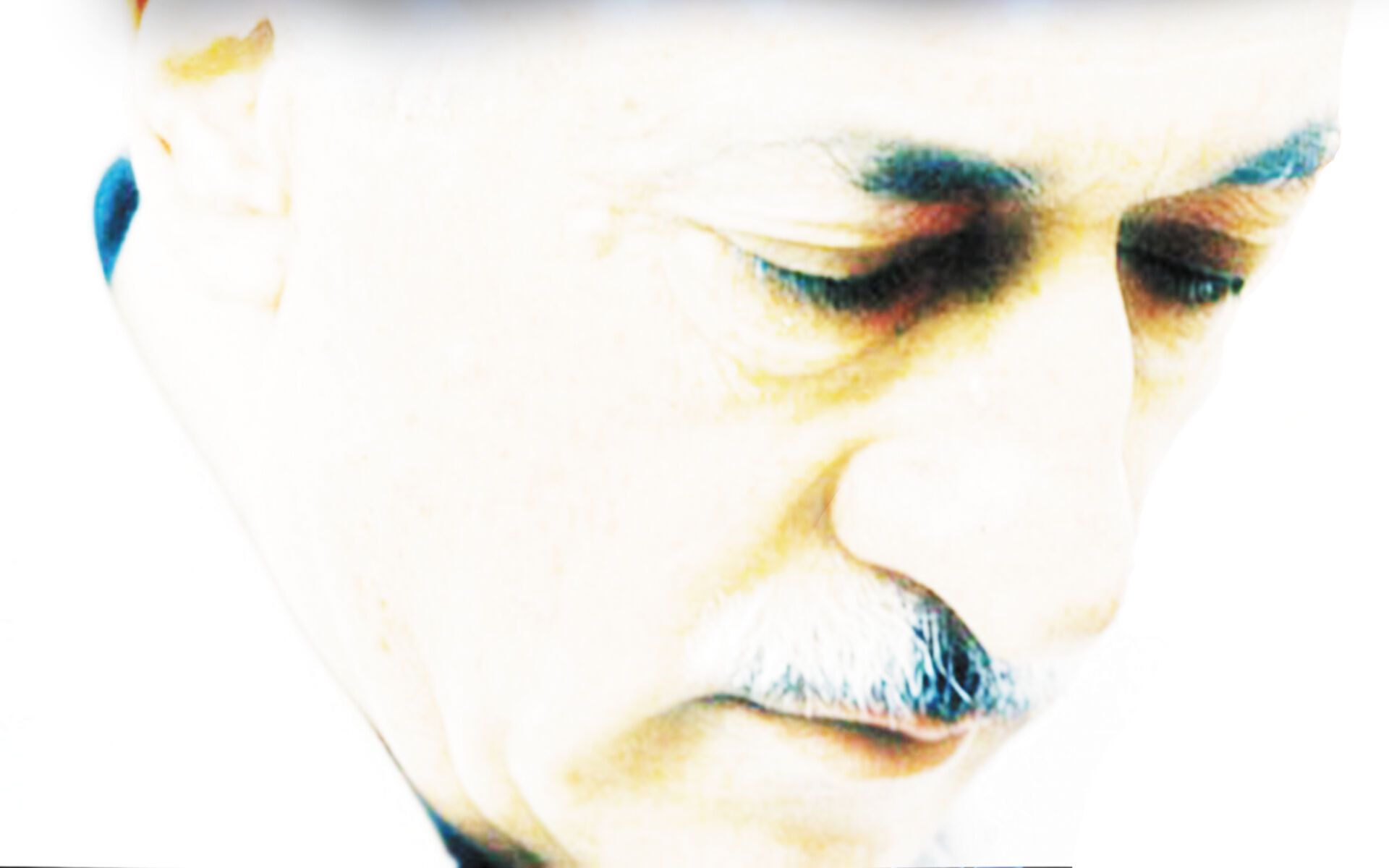Between Thought and Action: An Intellectual Biography of Fethullah Gülen

In This Article
-
Soltes’s book is one strong addition to the growing corpus of biographical studies on the Hizmet Movement and Fethullah Gülen.
-
Gülen was able to interpret the spirit of the times and introduce new methods for the expansion of the Movement.
-
Hizmet’s dialogue activities have Qur’anic foundations, that the Qur’anic verses in this context are rendered closer to understanding through Said Nursi’s and Gülen’s interpretations, and that the ways dialogue activities are carried out in a clime of acceptance have grown into platforms of love, peace, and brotherhood.
I follow closely and with great interest what Western thinkers write and think about the Hizmet Movement, how they evaluate the current conditions affecting the Movement, and how they shed light on its future. One such book that was recently released was “Between Thought and Action: An Intellectual Biography of Fethullah Gülen,” written by the esteemed intellectual and thinker Ori Z. Soltes.
Dr. Soltes’s book is one strong addition to the growing corpus of biographical studies on the Hizmet Movement and Fethullah Gülen. It includes original comments on current issues and interviews with people who have devoted themselves to the Hizmet Movement. The book is a fluent, original, and yet comprehensible expression of the life of esteemed Fethullah Gülen, known by supporters as Hodjaefendi.
In praise of the book, Jon Pahl says, “This book is a gift to anyone who wants to deepen their knowledge and understanding of Fethullah Gülen.” James C. Harrington states, “Ori Soltes provides an eloquent account of Gülen’s spiritual life and intellectual journey, and his service to societies through his social Islamic thought.”
The book has six chapters. While each chapter could likely be a book itself, Dr. Soltes, with his unique narration and style, packs these chapters into a book in a way that does not bore the reader and so takes us on a tour d’horizon, starting from the “small world” of Fethullah Gülen to his becoming a world-renowned Islamic scholar, intellectual, and educator. As its title suggests, Dr. Soltes’s book is a significant contribution differing from several other works in that it not only covers the foundations, development, and history of the Hizmet Movement besides the life of esteemed Gülen, it also, in the fourth chapter, includes interviews on how Gülen's philosophy and ideas have been incorporated into the Hizmet Movement and how the participants of the Movement and society at large have interpreted them.
Had someone asked me to summarize this book in one sentence, I would have quoted a student from Gülen’s teaching circle who said the following: “Even if I give up on myself, I know he (Gülen) will never give up on me” (p. 174). When you read the life of a person devoted to a sublime mission and meet his objectives and ideals that transcend human horizons, his love and devotion to his community strikes you in the heart, and then you understand why his life, thoughts, and ideals resonate in other people’s hearts.
In the first chapter, we read a short biography of Gülen’s childhood and upbringing in a pious family environment (p. 21) and how these had a lasting effect on his life. In this context, it is emphasized how his soul and realm of thought were shaped from an early age (p. 23), his interest in Western literary classics in addition to the works of Islamic scholars and thinkers (p. 25), how he became a role model for his community through his superior morality and dignity in his personal and social life (pp. 25, 26), and how his deep learning and psychological acuity combined to help him develop a reputation and to expand his following (pp. 25, 26, 31).
In the same chapter, it is also mentioned how Hizmet could reach 170 countries through the immense influence of Gülen’s “positive action” philosophy and became a movement serving every part of the world (pp. 25, 26, 31). It’s also a reminder of how the early periods of the Movement were laborious and agonized like today, and how—with the impact generated by Gülen’s sermons—people became devoted to the ideals he put forward (pp. 25, 26, 31, 32). The chapter also describes how he had to remain fugitive during military junta regimes, during which he continued to encourage his community to expand Hizmet by opening new schools (p. 34). Gülen even had to stay in a cave for a month between 1980 and 1986 when he was wanted by law enforcement and had to survive on bread and water alone (p. 34).
After describing the hardships Gülen and other Hizmet members experienced, the author mentions that Gülen was able to interpret the spirit of the times and introduce new methods for the expansion of the Movement (p. 36). While highlighting several trendsetting methods like opening educational institutions, establishing media organizations and publishing houses, encouraging philanthropists to provide accommodation for students, and the like, the author also highlights the public and inclusive Ramadan fast-breaking dinners and receptions as an example of effective religious jurisprudence in modern times (p. 34), as well as the interfaith dialogue events, including when Gülen visited the Vatican and opened his inter-religious dialogue activities to a wider audience (p. 36).
The second chapter has a short chronicle of Gülen’s world of thought and the author’s thoughts on the sources that shaped Gülen (p. 41) An expert on the history and philosophy of religions and political history, Dr. Soltes briefly evaluates the understanding of religion and God and the belief systems of Jews, Christians, and Muslims, before taking a journey into Gülen’s world of ideas. Soltes believes that interreligious conflicts have been caused by human ego in a place where the paths to God are thought to be unlimited, and that the politicization of the issue has led to such divisions and conflicts (pp. 41-51). After this brief historical introduction, the author explains why Gülen, an authoritative scholar on Islamic jurisprudence, emphasizes and recommends interfaith dialogue around the values of love, compassion, tolerance, science, universal values, and the core values of the Hizmet Movement, which some view as contrary to the general Islamic “tradition.” Soltes highlights this as an inspiration from the Sufi tradition (p. 51) and reveals how the prominent figures of the Sufi understanding—from Rabi’a al-‘Adawiyya to ‘Mawlana’ Jalal al-Din Rumi—influenced Gülen (pp. 52-90). The author also states it is not correct to translate the Turkish word hoşgörü, which Gülen frequently used in his dialogue initiatives, into English as tolerance as hoşgörü is a manner of dealing with others based on equality. Hoşgörü is nearer to acceptance.
In the third chapter titled “From Words to Actions: Dialogue, the Hizmet Movement and the Altruistic Activities,” we read the author’s observations and comments on the Movement’s educational and dialogue activities (p. 93). The author mentions Gülen not only as a theoretician who put forward an educational philosophy and pedagogy but also as a practitioner of educational thought and pedagogy which he applied starting from his years in Izmir and enriches this with the memories of Gülen’s students from that period. He states Gülen’s focus on education is due to his life philosophy: “I prefer to serve rather than to be served” (p. 97), a slight modification of Socrates’ saying, “I prefer to be a victim than to persecute others.”
The same chapter elucidates the pedagogy of education in schools opened by Hizmet volunteers as shaped by a “union of mind and heart” and emphasizes that Gülen synthesized and formulated this from the Nursi-Einstein perspective (p. 104) to improve the effectiveness of the education model. It is also emphasized that the schools serve people of all faiths, which Gülen interprets for the modern world as, “Come, come and join us,” mirroring Rumi’s famous invitation (36). The high academic achievement of the schools is also attributed to the generous, altruistic, humble, and persevering teachers (pp. 111-122) who are so fond of their students.
In the section on dialogue in the same chapter, the author quotes from the Qur’an and the works of Gülen and states that Hizmet’s dialogue activities have Qur’anic foundations, that the Qur’anic verses in this context are rendered closer to understanding through Said Nursi’s and Gülen’s interpretations, and that the ways dialogue activities are carried out in a clime of acceptance have grown into platforms of love, peace, and brotherhood (pp. 269-273).
The fourth chapter, “In Their Own Words: The Followers and Sympathizers of Gülen and Hizmet Speak,” includes interviews conducted with a wide range of people from different age groups, countries, and nationalities. Here is what some of them think:
As a man of religion, Fethullah Gülen, “not only preached, but led by example” (p. 136), and “every morning I have met 'a new Hizmet Movement and I think, this is the reason why I am here’” (p. 153). In addition, “Gülen's role model behavior through his actions, rather than simply his words” (p. 155) and his emphasis on “embracing all humanity for universal peace with the assertion that peace depends on the extent of our love for humanity” are resonant and resolute messages that stole my heart as we mostly do not hear such words from other Muslim scholars (p. 159) nowadays.
An authoritative scholar and thinker, Fethullah Gülen also “has an aura and personal appeal by being so kind, generous, and approachable” (p. 160). In time, I noticed this is not only limited to him; almost everyone in the Hizmet is “by default good people, generous and trustworthy” (p. 167).
From a broader perspective, Gülen “is the very person who has brought Turkey to the world arena with a successful education project” (p. 174) and “Gülen's Islam is a universal, civil Islam.” (p. 179) Thanks to this, “The Gülen Movement is very inclusive: open to the East, open to the West, open to dialogue” (p. 180).
Many fell in love with Gülen’s idealistic worldview—he preached from the pulpit of mosques, “We don’t need to fight, we need to talk” (p. 183). This would introduce Muslims to the world through positive action. Encouraging people to achieve this cause, Gülen always and still emphasizes universal human values, and I consider this noteworthy (p. 195).
As a participant of the Hizmet Movement, “I think what attracts me most is its vision” (p. 195), and I am impressed by the “Hizmet Movement’s openness to dialogue and understanding of people of different faiths” (p. 231). An American friend of the Hizmet Movement says, “in an institution of the Hizmet Movement, among the brochures displayed at the entrance, were also pamphlets in which ideas critical of the Hizmet Movement were quoted,” and “the Hizmet Movement does not hide anything, it discusses these ideas honestly and presents them in a way that is absolutely understandable” (p. 245).
Finally, this section of the book maintains that “Gülen's life can be explained by five key elements, models or relationships: 1) his emphasis that participation in non-violent activities ensures integrity; 2) his implementation of the code of principled pluralism in all spheres—he demonstrates this frankly in dialogue activities; 3) what I call engaged empathy—a deep feeling for the suffering of the world, and willingness to engage on behalf of alleviating that suffering; 4) his commitment to spiritual and scientific literacy; 5) his success in setting out the institutional model of a social enterprise” (p. 246).
In the same chapter, middle-aged adults and youth were also interviewed, revealing people with diverse backgrounds and from different parts of the world. The author appraises his observations and experiences among the older and younger generations and explains: “Albeit generational gaps between the people we talked to, when it came to the Hizmet culture, they were so similar in evaluating events and incidents from so analogous perspectives.” Soltes also states, “After long observations and witnessing the behavior and lives of the Hizmet participants, you come upon a circumstance so synchronous and harmonious that someone not familiar with the Hizmet Movement might think these people are of a top-talent theater troupe trained at the same acting school” (p. 10).
In the concluding part of the book, the author touches upon current issues in two sections titled “Why does Erdoğan hate Fethullah Gülen so much?” and “Turkey’s July 2016 ‘Coup’—Fake and False, not Failed.” The first part mentions Gülen’s alignment with values and principles and how Erdoğan remains adrift from these. It also mentions that Gülen has never been interested in politics and that the Hizmet Movement has remained a social movement, a stance exploited by the Erdoğan regime to depict the Hizmet Movement as an object of hate to consolidate its own power and avoid justice in the wake of massive corruption (pp. 111-122). In the final section, the author argues that the July 15th attempt was not a coup d'état. He provides examples from the series of events on that fateful day and similar incidents elsewhere in the world and clearly states that an attempt like the one on July 15, 2016, must have been a fake attempt (pp. 273-278).








